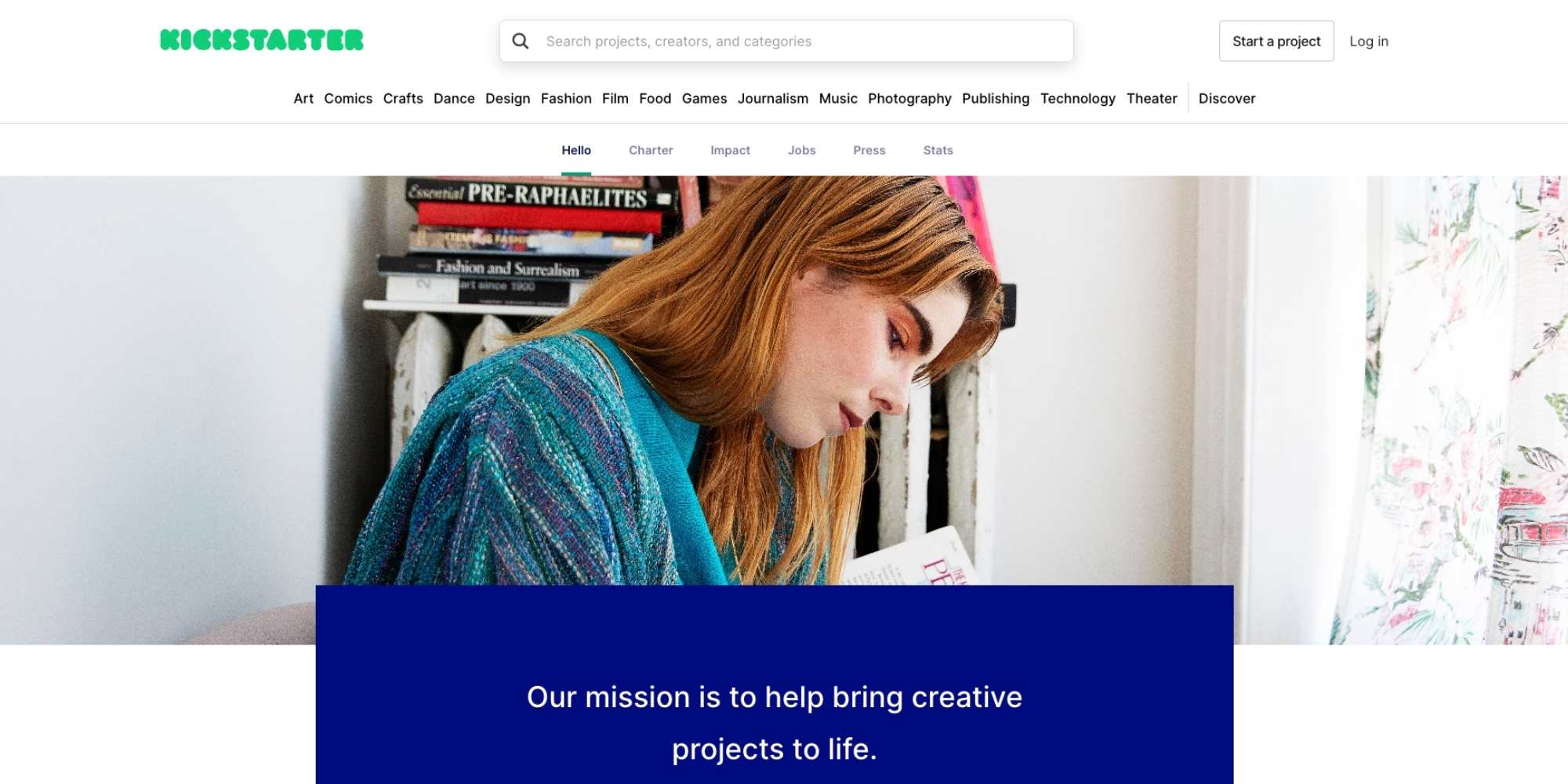
About the Author
Jesse Galanis is a professional writer whose aim is to make complex concepts easy to understand. He strives to provide quality content that assists people in everyday life.
Jump Right In: Navigating Crowdfunding Regulations
Introduction
Are you looking to raise some funds for your business through crowdfunding? Or are you a potential investor wondering if an investment in a crowdfunded campaign is right for you?
Crowdfunding has become a popular way to raise money for new businesses or to finance business growth. As one market data report from Gitnux shows, the crowdfunding market is well on its way to reaching a projected value of $28.2bn by 2028. Much of the popularity of crowdfunding may be due to its value, not just to businesses seeking to raise capital but also to investors seeking alternative investment vehicles.
Before you jump into crowdfunding, however, whether as an issuer (businesses looking to raise funds) or as a subscriber (investor), this article provides an essential guide to the broad compliance and regulatory obligations that are applicable to crowdfunding in the United States.
The 4 Basic Crowdfunding Models
The regulations and rules that govern crowdfunding can be somewhat complex, as these rules may vary depending on the particular crowdfunding model you adopt.
To understand how crowdfunding regulations may apply to your specific situation, it would be helpful to first understand what the different crowdfunding models are and how they work. These models are briefly explained below:

Donation-based Crowdfunding
As the name implies, donation-based crowdfunding is a crowdfunding model where individuals contribute to a project without receiving anything in return. While it is possible to use donation-based crowdfunding to raise capital for a business, it is most typically used for charitable purposes.
Reward-based Crowdfunding
With reward-based crowdfunding, investors give money with the expectation of receiving certain benefits in exchange. However, they do not acquire any ownership stake in the business. Rewards may include things like free services or products but do not extend to any direct financial benefits.
Equity-based Crowdfunding
Equity-based crowdfunding allows investors to become shareholders of the issuing business. This is a common way for small businesses to raise capital without needing to meet the stringent registration requirements of an initial public offer (IPO). However, businesses looking to raise funds via an equity-based crowdfunding round still need to be aware of some other regulations. These will be discussed subsequently.
Debt-based Crowdfunding
Debt-based crowdfunding is similar to equity-based crowdfunding, as debt-based investors also provide funds with the expectation of financial returns. However, in the debt-based crowdfunding or peer-to-peer lending model, investors do not acquire any ownership stake in the issuing business.
While donation and reward-based crowdfunding do not involve the exchange of securities, both equity and debt-based crowdfunding do. This brings them under the purview of the Securities Exchange Commission and a web of applicable rules and regulations.
The Framework of Crowdfunding Regulations in the United States
The crowdfunding market is governed by a number of laws and regulatory bodies that collectively serve to protect investors and encourage economic growth while ensuring the stability of the financial markets. The Securities Act of 1933 and the Securities Exchange Act of 1934 are the main pieces of legislation that govern the securities market as a whole, with the Securities and Exchange Commission (SEC) as its main regulator and enforcer.

Alongside the SEC, however, there are other bodies such as the Commodity Futures Trading Commission (CFTC), as well as the Financial Industry Regulatory Authority (FINRA) that play important roles in the regulation of the finance industry. With respect to crowdfunding specifically, the FINRA is charged with overseeing broker-dealer firms in crowdfunding transactions.
In addition to the Securities Act and the Securities Exchange Act, the Jumpstart Our Business Startups (JOBS) Act is another crucial piece of legislation that helps to shape the crowdfunding market in the USA. The JOBS Act provides a number of exemptions to SEC rules that help to facilitate small-scale crowdfunding. These and other exemptions are discussed in further detail next.
Crowdfunding Regulations Under The JOBS Act
The JOBS Act was passed by Congress in 2012. The act was designed to promote startups and new businesses by granting them increased flexibility in fundraising. The JOBS Act has been a game-changer for the crowdfunding market, finally creating room for businesses to raise meaningful levels of financing from unaccredited investors.
The SEC has built on the foundation laid by the JOBS Act with the adoption of Regulation Crowdfunding (Reg CF), a crucial exemption to SEC regulations on the issuance and registration of securities.
In addition to Reg CF crowdfunding, businesses can also raise funds via Regulation A+, another major exemption that allows businesses to raise funds without having to fulfill the usual registration SEC regulations. These regulations and exemptions are discussed in greater detail below.
Regulation Crowdfunding (Reg CF)
Generally, the Securities Act requires that any issue or subscription of a company’s securities be registered with the SEC. However, certain transactions, broadly identified as regulation crowdfunding, are exempt from this rule. To successfully use regulation crowdfunding, there are a number of rules to be observed, which are outlined below:

1. The Need for Online Intermediaries
Investors in regulation crowdfunding are required to use third-party intermediaries. These may be either dealer-broker or funding portals. In all cases, however, investments made under the regulation crowdfunding framework must be made online. If you’re not sure what online intermediary to use, compare some of the top online crowdfunding platforms like these:
- Kickstarter
- Indiegogo
- Crowdcube
- GoFundMe
- Fundable, etc.
Phil Strazzulla, Founder of SelectSoftware Reviews, stressed the importance of choosing a crowdfunding platform with a record of successful campaigns. He remarks, however, “Even if it is a long-standing crowdfunding platform, you must ensure it complies with consumer protection regulations, anti-money laundering (AML) requirements, and cybersecurity laws. It’s also necessary to review the platform’s terms of use, which particularly touch upon disbursement of funds and dispute resolution, to prevent any legal issues in the future”.
2. Restrictions on the Activity of Unaccredited Investors
Accredited investors–who are considered to be highly financially knowledgeable are permitted to invest via regulation crowdfunding without any restrictions. Unaccredited investors, however, are subject to strict limitations on how much they can invest within a 12-month period.
3. Restrictions on Transfer of Interests (one year)
If you’re looking to invest via regulation crowdfunding, one thing to be aware of is the fact that securities acquired this way are subject to certain liquidity limitations. Primarily, you will generally not be able to transfer your interests for an initial period of one year.
4. Maximum Issue of $5 million
As section 4(a)(6) of the Securities Act provides, companies can raise up to, but no more than $5 million per issue. This includes any securities sold in the 12-month period preceding an offer.
Simplify Rewards Shipping with a 3PL!
Get a free quote from the packaging and shipping experts at eFulfillment Service and see how a 3PL could simplify your order shipping!
Regulation A+ Crowdfunding
Regulation A+ crowdfunding allows businesses to raise funds by offering securities to both accredited and non-accredited investors–just as with Reg CF. However, while Reg CF issues can only be subscribed to via online third-party intermediaries, Regulation A+ offers can be made via private placements. Reg A+ offerings are also structured in a dual-tier system, with Tier 1 offerings being subject to a cap of $20 million while Tier 2 offerings are capped at $50 million.

Crowdfunding Compliance Obligations for Issuers and Investors
Although the creation of the JOBS Act and the amendments to the Securities Act are generally progressive, they have also brought about additional pitfalls for players in the crowdfunding markets. With lower barriers to entry for issuers and subscribers alike, external investors may be exposed to greater risks.
The good news is that despite the reduction in regulatory pressure, there are still several regulations in place to protect investors and ensure integrity in crowdfunding operations. Some of these are discussed below:

Investor Protection
The Securities Act helps to protect vulnerable investors through its accreditation system. Accredited investors are typically high-net-worth individuals who are considered to be financially savvy. To qualify as an accredited investor, individuals need to have a minimum yearly income of $200,000 or $300,000 for a couple, or in the alternative, a net worth of $1 million or more. Individuals who can demonstrate a high level of financial education or work experience may be exempted from this requirement.
While accredited investors may invest freely, unaccredited investors will face strict limits to the amounts they may invest via regulation crowdfunding. The aggregate amount of all securities sold to a single unaccredited investor within a 12-month period cannot exceed $2,500 or 5% of the investor’s annual income or net worth, whichever figure is greater.
Platform Operator Requirements
Regulation Crowdfunding can only be done through registered third-party online platforms. These can be either a broker-dealer entity or a funding portal.
Broker-dealers do not require any additional registration requirements, as prior registration with the FINRA will suffice. Funding portals, on the other hand, must register with the SEC in order to serve as crowdfunding intermediaries. These entities are subject to certain operational restrictions that do not apply to broker-dealer intermediaries.
Primarily, funding portals cannot offer investment advice, solicit sales or purchases of security offered via their platforms, commission other persons to undertake such solicitation, or manage investor funds or securities.
Bad Actor Disqualification
Under Rule 503 of Regulation D (Regulation Crowdfunding), certain categories of issuers are disqualified from offering unregistered securities. Under this rule, disqualification events are defined to include things like criminal convictions, court injunctions and restraining orders, SEC disciplinary offers and so on.

Crowdfunding Contractor Agreements
Issuers should enter into written agreements with crowdfunding contractors, typically financial consultants or crowdfunding marketers. These professionals are often hired to handle various aspects of a project, be it for strategic, financially wise campaign planning or promotion.
Such a contract protects both parties and helps outline the following:
- Scope of work
- Deliverables
- Timeframe
- Payment terms
- Intellectual property (IP) rights
- Confidentiality obligations
- And other relevant terms and conditions
It is also essential to note that crowdfunding contractors may require insurance coverage (such as general, professional, or cyber liability insurance) to avoid possible risks during crowdfunding activities.
Get a Free Crowdfunding Fulfillment Quote Today!
Ready to enhance your crowdfunding strategy? Contact us now for a free consultation and learn how eFulfillment Service can optimize your logistics operations!
Getting Started With Crowdfunding
Whether you’re looking to raise money through crowdfunding or to invest in a business looking to raise money in this way, understanding the regulatory framework that governs crowdfunding is key. As discussed above, if the crowdfunding model involves equity or debt, it should ordinarily be registered with the SEC.
However, thanks to exemptions created by the JOBS Act, small-scale crowdfunding can be unregistered. Issuers and subscribers under these models, which include Regulation Crowdfunding and Regulation A+ crowdfunding, will have to meet certain qualifications to participate as outlined above.
For more detailed guidance, be sure to speak with your lawyer. And if you have any questions, please let us know in the comments section below, and don’t forget to browse through our blog for more helpful content. We’d recommend this article on making your crowdfunding campaign go viral!





0 Comments